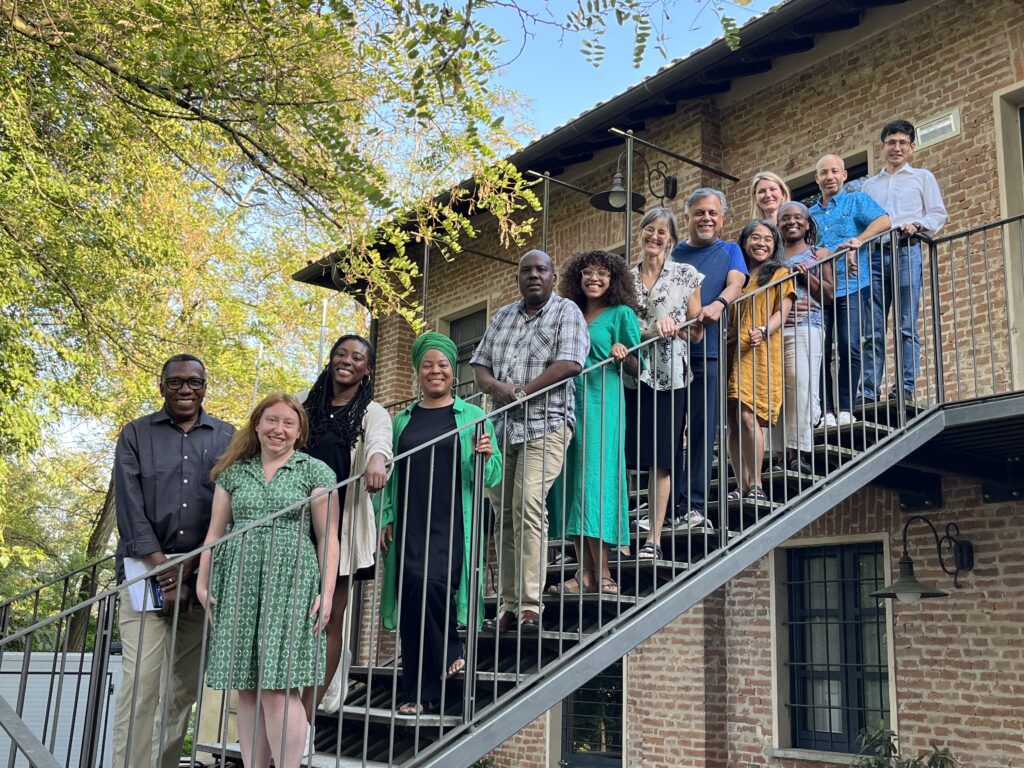Grappling with the Legacies of Anthro-Cast: The Work of Bones in the Age of Mechanical Reproduction
Date
Sep 8-12, 2023Organized by
Chip Colwell and Danilyn RutherfordLocation
La Cascina Erbatici Mezzana Bigli, Pavia, ItalyParticipants
- Donna Auston Wenner-Gren Foundation, USA
- Chip Colwell SAPIENS, USA
- Isis Dwyer University of Florida, USA
- Fredrick Manthi National Museums of Kenya, Kenya
- Charles Musiba University of Colorado-Denver, USA
- Xijun Ni Chinese Academy of Sciences, China
- Juno Parreñas Cornell University, USA
- Ciraj Rassool University of the Western Cape, South Africa
- Danilyn Rutherford Wenner-Gren Foundation, USA
- Lauren Schroeder University of Toronto, Canada
- Sabrina Sholts Smithsonian Institute, USA
- Rachel Watkins American University, USA
ORGANIZER’S STATEMENT: Between 1962 and 1976, the Wenner-Gren Foundation manufactured and distributed replicas of over 900 fossil discoveries from around the world. Heralded as a signal contribution to science, Anthro-Cast used a novel technique born of research sponsored by the Foundation to create what amounted to duplicate originals: patterns made of high quality, durable material, from which molds could be taken and infinite numbers of casts produced. Molds were taken in apartheid-era South Africa, newly independent Uganda, and Kenya, where Louis Leakey worked as a curator at the National Museum. Mold makers also traveled to Gadja Mada University in Indonesia, the National Museum of Iraq, the Musée Royale de l’Afrique Centrale in Belgium, the British Museum in London, the Peabody Museum and the Smithsonian Institute in the U.S., and beyond. The casts made from this effort ended up in teaching collections in more than 300 institutions, ranging from medical schools to university programs to museums and secondary schools. Several generations of paleoanthropologists first learned of the Wenner-Gren Foundation in classrooms and labs where they encountered these casts.
In the early 1980s, the Foundation transferred the remaining stock to the University of Pennsylvania Museum, which, likely since 1951, also held an important early collection of fossil molds, made by H.O. Barlow in the early 20th century. In October 2022, the University of Pennsylvania Museum asked to return the loan to the Foundation. This request has raised a much wider set of ethical and disciplinary issues concerning the fate of this project, and the various forms of violence it involved. In the spring of 2021, anthropologists learned Alan Mann and Janet Monge had retained the remains of children murdered by the Philadelphia police during the MOVE bombing in 1985 and were using them in research and teaching without their families’ consent. Driven in part by this scandal, the discipline of anthropology has reached a critical juncture when it comes to our treatment of human remains. Advances in 3D printing have sparked a debate around the ethical status of replicas. Calls to decolonize the discipline have cast a bright light on the hegemonic relationship that has existed between institutions in the Global North and Global South. At stake are larger quandaries about who is “human,” and the distinctions made among species and their relationality.
Anthro-Cast raises the question of who gets to tell the story of human evolution, how, and at what cost. It also raises pressing questions around consent: the consent of curators, the consent of communities in the proximity of the original excavations, and the consent of the loved ones of the contemporary human individuals whose remains were replicated and sold. Wenner-Gren is implicated in this history. The moment has come for repair.
This seminar brought together a broad international group of researchers, curators, and scholars to help the Foundation think through these issues. The seminar explored such questions around a range of obligations that arise from Anthro-Cast in particular and replication technologies more generally: to the institutions and researchers who created and used these collections, to people from the regions where the fossils were found, to descendant communities for more recent remains, to the wider histories that were made possible by casting and reproductions.
Our goals included providing concrete guidance for the Foundation to follow to fulfill any reparative work required, using our discussions and actions around Anthro-Cast as a model for other institutions grappling with similar issues, and contributing to broader anthropological knowledge building and emergent decolonizing ethical practices in the field.
